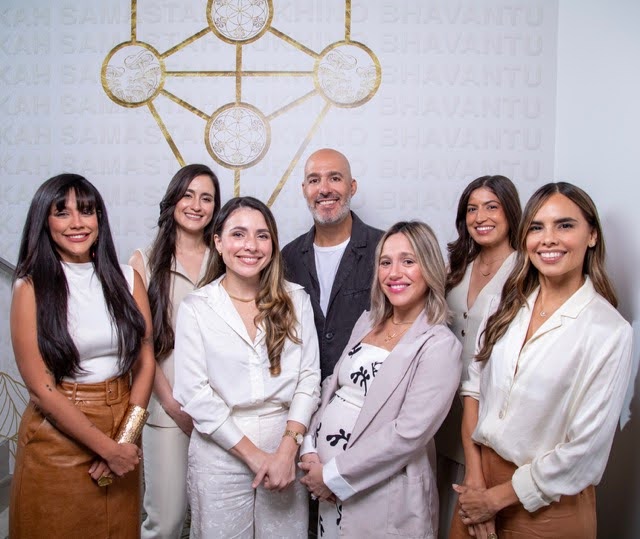Copyright International Business Times

For most of modern history, medicine has sought to treat the body as a collection of systems, mechanical, biochemical, and reactive. We have made extraordinary progress: we can replace hearts, edit genes, and extend lives. Yet for all this advancement, there remains an essential dimension of health that we rarely discuss: the human spirit. As someone living with Parkinson's disease, I have come to see how medicine's focus on symptom management often leaves little room for understanding the deeper connections between the mind, body, and consciousness. My journey through this condition has revealed that healing is not merely a physical process; it's a dialogue between biology and awareness. In my experience, the future of medicine will not be defined by more sophisticated machines or more targeted molecules alone, but by a deeper understanding of consciousness itself. Healing is both an act of biological process and awareness. Psychedelics, natural compounds used in sacred and therapeutic contexts for millennia, are reintroducing that truth to science. The term 'Entheogen,' derived from Greek, means "to generate the divine within." And while the term may sound spiritual, the implications are profoundly medical. Entheogens invite us to question how perception, belief, and neurobiology intersect. They appear to unlock what neuroscience calls neuroplasticity, the brain's remarkable ability to rewire itself. Research suggests these compounds stimulate the growth of new neural connections, regulate serotonin pathways, and even reduce inflammation, all critical factors in mental and neurological health. But beyond the neural, they touch something subtler. They expand consciousness in ways that reveal the inseparability of mind, body, spirit, and environment. In traditional medicine, this unity is often taken for granted; in modern science, it is rediscovered through data. Through that experience, I found a deeper connection to my purpose and found hope and healing. As I see it, entheogens are not opposing science; they are completing it. My own journey into this space began not as a scientist or a seeker, but as a patient. Three years ago, I was diagnosed with Parkinson's disease. My first neurologist told me, gently but firmly, that there was no cure, only symptom management. It was a sentence that many patients hear, but few challenge. I decided to challenge it. Guided by my wife, an Internal Medicine Physician trained in Functional Medicine, I began to understand that Parkinson's, in many cases, can have environmental roots: exposure to toxins, pesticides, or mold that trigger long-term neuroinflammation. Studies link pesticide exposure to a higher risk of developing Parkinson's. If the environment can make us sick, could it also play a role in our healing? I began to detoxify my body and my life, changing my diet by eliminating sugar, dairy, and gluten, adding mindfulness practices, exercising regularly, eliminating alcohol, and using daily infrared sauna therapy to aid natural detoxification through sweat. Hyperbaric oxygen therapy followed, promoting neurogenesis and tissue repair. These physical interventions mattered deeply. But what shifted everything, what brought meaning to the process, was what I can only describe as an awakening of consciousness. Through guided, intentional use of entheogens, I began to perceive my illness differently. It was no longer an adversary but a teacher, one showing me the intricate dialogue between the mind and the body. In several experiences, my tremor, normally constant, would cease entirely. My body was still, my mind clear. Whether the effect was biochemical or metaphysical hardly mattered; what mattered was that it was real. That moment reshaped how I think about medicine. It affirmed that the frontier of health lies not in suppressing symptoms, but in reawakening the body's innate intelligence. Entheogens, when used ethically and under professional guidance, can act as catalysts for that awakening. They help people access the part of healing that no laboratory can synthesize: the will to change. Of course, this is not a call to replace conventional medicine, nor to romanticize any substance. Entheogens are not shortcuts to enlightenment or universal cures. They are instruments, powerful ones that must be approached with science, structure, and reverence. Their integration into medicine demands research, regulation, and cultural responsibility. Around the world, scientific institutions are beginning to reconsider their place in medical research. In Canada and Mexico, clinics are studying plant-based therapies for trauma, addiction, and neurodegeneration. The early data are promising, but the greater transformation is philosophical: it challenges the idea that healing is purely external. Medicine, I believe, is evolving from a system of intervention to a practice of connection. Entheogens remind us that consciousness, that subtle, immeasurable force within us, may be the most powerful medicine of all. They teach us to see illness not as punishment, but as communication; not as a failure of the body, but as a signal from the self. When I look back on my diagnosis now, I see it not as the end of something, but as the beginning of a lifelong dialogue with my own biology. I regained mobility. My handwriting returned. I can cook, drive, and live without fear. I am not "cured," but I am transformed. Healing, I have learned, is not linear; it is conscious. If we dare to expand the scope of what medicine means, to embrace both the measurable and the mysterious, we may rediscover the sacred dimension of science itself. Entheogens are not here to replace modern medicine; they are here to remind it of its oldest purpose: to heal the whole human being. That, to me, is the medicine of the future, one that not only fights disease but elevates humanity. About the Author:



